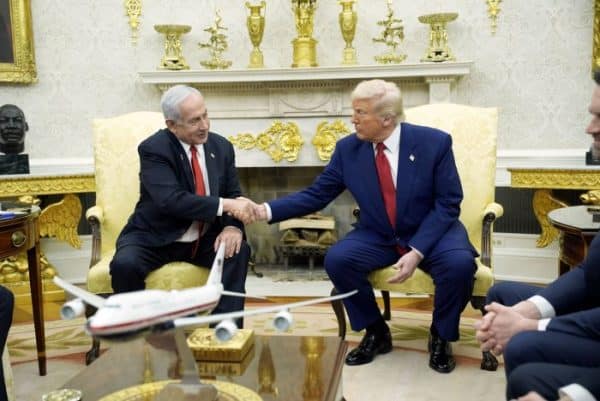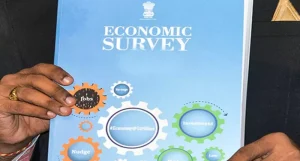Non-tariff Barriers To Trade Because Tariffs Are NOT Enough

If you have been following the events in the global economy since Liberation Day you have undoubtedly been confronted with many opinions as to the wisdom or folly of the actions of President Donald J Trump — the Tariff King/Emperor. Like everything in our complicated trade picture, there is far more than meets the eye.
If you own equities, it is even possible you are choking on some meaningful paper losses.
WTF is actually going on, Big Red Car?
Well, dear reader, what you are seeing is a massive global trade RESET just like re-booting your computer when it fails to operate as it is supposed to do. President Trump, as he promised, hit the RESET button and imposed tariffs based on a concept of reciprocity.
This is part of Candidate Trump’s suite of financial campaign promises: to right size the government, to get rid of fraud, waste, and corruption, to reduce spending, to conquer inflation, to lower interest rates, and to put international trade on a fair and free footing.

Leader of Israel, Bibi Netanyahu, meeting with President Trump — first in line to discuss tariffs and non-tariff barriers to trade. The parade is coming.
Part of that is fair, reciprocal tariffs. But, it is not just reciprocity, it is also what are called NBTs — non-tariff barriers to trade — that have the same impact as tariffs, they restrain the ability of American manufacturers to obtain access to foreign markets and to have a fair chance to do business on a level playing field.
At its core, the Trump RESET is all about fairness.
So, what are NBTs, Big Red Car?
Countries often turn a smile toward the United States about tariffs (reportedly 70 foreign countries are forming up to come to Washington to work out their tariff situation), but erect other reasons other than just tariffs to preclude the purchase of American goods.
Here are some examples of non-tariff barriers to entry:
Import Quotas – Quantity limitations on how much of a certain product can be imported into the foreign country. As part of USMCA, Canada has strict quotas of American dairy products.
Licensing Requirements – Licensing rules that require often complex and time consuming licenses to import certain US products into the foreign country. China is notorious for licensing requirements and constantly changing the requirements.
Technical Barriers to Trade (TBT) – Standards, regulations, and testing requirements unique to American goods such as GMO content, labelling, and sustainability requirements. The EU and Japan are notorious for these kind of barriers.
Sanitary and Phytosanitary (SPS) Measures – Changing health and safety requirements for food and agricultural products such as hormones administered to beef and bans after avian flu epidemics.
Customs Procedures – Complicated and changing customs procedures at the port of entry such as complicated and changing paperwork and inconsistent valuation methods.
Subsidies – Foreign government financial support to domestic industries thereby making American goods unfairly more expensive and less competitive such as Chinese support for domestic steel manufacturing and European Union support for domestic agriculture.
Government Procurement Policies – Foreign country central government requirements to buy locally such as “Buy In India.”
Intellectual Property (IP) Issues – Inadequate protection for US patented products such as Chinese theft of intellectual property and Indian failure to protect pharmaceutical patented information.
Digital Trade Barriers – Foreign country rules pertaining to crossborder transmission of data, cloud storage, and privacy such as the European Union’s General Data Protection Regulation (GDPR).
Forced Technology Transfers – Requirements for American companies to share critical technology with local companies and enforced partnerships with foreign companies such as Chinese requirement to share technology as a pre-condition for entering the Chinese market.
Currency Manipulation – Manipulation of currency — such as China has done on several occasions — to make imports more expensive and exports cheaper.
Local Content Requirements – Mandates that a certain percentage of an imported product must be made in the foreign country such as India’s rules on solar panels and Brazil’s rules on energy.
Environmental and Labor Standards – Requirements for certain climate and carbon restrictions on imported products such as the European’s requirements for a cost adjustment for carbon footprint and Australia’s environmental standards.
Anti-Dumping and Countervailing Duties – Additional tariffs and duties on products deemed to be sold at below production cost such as India’s duties on American chemicals.
Voluntary Export Restraints (VERs) – A request to voluntarily restrict imports if deemed to upset local markets.
Rules of Origin – Rules creating preferential access to foreign for countries other than the US.
Investment Restrictions – Rules restricting American investors investing in specific protected industries in the foreign country such as automotive, retail, chemical, and insurance.
Other Regulatory Barriers – Specific sector rules and taxes that impact targeted industries such as the French tax on large tech companies.
The above non-tariff barriers to trade often come in combinations and permutations and American companies when confronted with such a coordinated effort to stymie their individual attempts to tap certain foreign markets give up in frustration. This, of course, is exactly the objective of the foreign country — to drive away American competition and imports.
So, what is President Trump doing, Big Red Car?
President Trump is calling an end to all unequal tariffs and non-tariff barriers to trade. All of them. He has hit the RESET button and he is serious.
President Trump is the only President in my lifetime who understands the tariff environment as he does, understands global trade, and has the fortitude to do something about it.
What he has done is dramatic and earth shattering. He has drained the pool and revealed who has been swimming naked and he is not going to budge until other countries treat the United States fairly.
Is it going to work, Big Red Car?
Yes. There will be some more stock market pain — the Chinese market was down 12% this morning, so this knife cuts both ways — but if the United States holds its position, it will work and it will work like a champ.
We will get as close to fair, free trade as we can in the world as it really exists.
My gut tells me President Trump will prevail.
Bottom line it, Big Red Car, we’ve got to tailgate for the National Championship
Fine, dear reader. Here it is:
1. The world has been abusing the United States for years and years with unfair tariffs and non-tariff barriers to trade. This is irrefutable.
2, President Donald J Trump is not going to put up with it and has hiked tariffs on all foreign countries until they come to Washington to negotiate a fair deal.
3. Thus far there are reportedly 70 foreign countries that want to get in line for a trade colonoscopy.
This will still be dicey, but there is only one US marketplace and if a country wants to sell into that marketplace then they will have to play ball.
But, hey, what the Hell do I really know anyway? I’m just a Big Red Car. Houston wins tonight in a fairly easy contest. Hook ’em, Heels!






